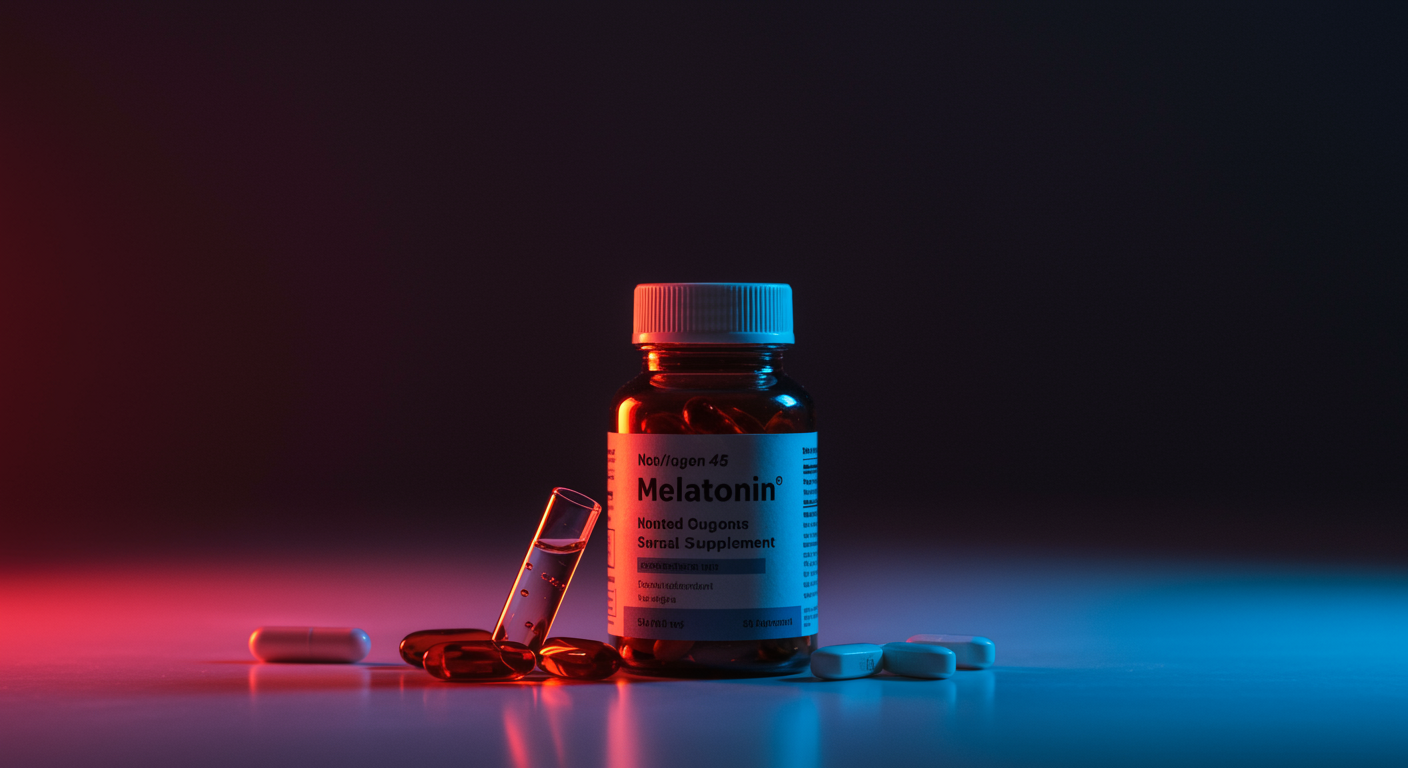Are Commercial Melatonin Supplements Actually Pure and Accurately Dosed?
Analysis of commercial melatonin supplements reveals significant quality control problems, with many products containing serotonin contamination and dramatic variations in actual melatonin content compared to labeled amounts. This comprehensive study tested 31 melatonin supplements and found that actual melatonin content ranged from 83% below to 478% above labeled amounts, with the majority of products (71%) containing melatonin levels that differed by more than 10% from the label. Additionally, 26% of products contained serotonin, a potentially dangerous contaminant that could cause serious adverse effects. The findings highlight major quality control issues in the melatonin supplement industry and raise important safety concerns for consumers.
Dr. Kumar’s Take
This research is deeply concerning and highlights major problems with supplement regulation and quality control. The fact that melatonin content can vary from 83% below to 478% above labeled amounts means consumers have no idea what dose they’re actually taking. This is particularly problematic for melatonin because the effective dose range is quite narrow—too little won’t work, and too much can actually worsen sleep or cause next-day grogginess. Even more alarming is the serotonin contamination found in 26% of products. Serotonin doesn’t belong in melatonin supplements and could cause serious adverse effects, especially in people taking antidepressants or other medications that affect serotonin levels. This could lead to dangerous serotonin syndrome. The variability between batches of the same product is also concerning—even if you find a product that works, the next bottle might be completely different. This research underscores why I always recommend pharmaceutical-grade supplements from companies that do third-party testing and provide certificates of analysis.
Key Findings
The analysis of 31 commercial melatonin supplements found that 71% contained melatonin levels that differed by more than 10% from the labeled amount. The actual melatonin content ranged from 83% below the labeled amount to 478% above, representing massive variations in dosing accuracy.
Serotonin contamination was detected in 26% of the tested products, with concentrations ranging from trace amounts to significant levels. Serotonin is not an intended ingredient in melatonin supplements and represents a serious quality control failure with potential safety implications.
The study also found significant batch-to-batch variability within the same products, meaning that different bottles of the same brand and product could contain vastly different amounts of melatonin. This inconsistency makes it impossible for consumers to achieve consistent dosing.
Brief Summary
This study analyzed 31 commercially available melatonin supplements purchased from various retailers, including both branded and generic products. Each product was tested using validated analytical methods to determine actual melatonin content and screen for contaminants including serotonin. The analysis compared actual content to labeled amounts and examined batch-to-batch consistency within products.
Study Design
The research used rigorous analytical chemistry methods including high-performance liquid chromatography (HPLC) to accurately measure melatonin content and identify contaminants. Multiple batches of the same products were tested when available to assess consistency. The study included products from various manufacturers and price points to provide a representative sample of the commercial melatonin market.
Results You Can Use
Most commercial melatonin supplements (71%) contain significantly different amounts of melatonin than labeled, with variations ranging from 83% below to 478% above stated amounts. This means you cannot rely on label claims for accurate dosing.
Over one-quarter (26%) of products contain serotonin contamination, which could cause adverse effects, especially in people taking medications that affect serotonin levels. Batch-to-batch variability means even the same product may vary dramatically between purchases.
These findings suggest that supplement quality varies widely, and consumers should seek products from manufacturers that provide third-party testing and certificates of analysis.
Why This Matters For Health And Performance
Inaccurate melatonin dosing can significantly affect effectiveness and safety. Too little melatonin may be ineffective for sleep, while excessive amounts can cause next-day grogginess, disrupt natural melatonin production, or worsen sleep quality.
Serotonin contamination poses serious safety risks, particularly for people taking antidepressants, as it could contribute to dangerous serotonin syndrome. The lack of quality control undermines the potential benefits of melatonin supplementation.
How to Apply These Findings in Daily Life
- Choose reputable manufacturers: Look for companies that provide third-party testing and certificates of analysis
- Verify testing: Ask manufacturers for batch-specific testing results showing melatonin content and purity
- Start with lower doses: Given the potential for higher-than-labeled content, start with the lowest effective dose
- Monitor effects: Pay attention to how different bottles of the same product affect you, as content may vary
- Consult healthcare providers: Discuss melatonin use with your doctor, especially if you take other medications
- Consider pharmaceutical-grade options: Look for USP-verified or pharmaceutical-grade melatonin products
Limitations To Keep In Mind
This study examined a limited number of products and may not represent the entire melatonin supplement market. Testing was conducted at a single time point, and quality control may have improved since the study was conducted. The health significance of the serotonin contamination levels found requires further investigation.
Related Studies And Internal Links
- Melatonin for Sleep Disorders: Meta-Analysis Evidence
- The Pineal Gland: Your Body’s Melatonin Factory
- Room Light Before Bedtime Suppresses Melatonin Production
- Tryptophan Supplementation Improves Sleep Quality: Meta-Analysis
- How to Sleep Better: Science Daily Playbook
FAQs
How can I find high-quality melatonin supplements?
Look for products that are USP-verified, provide certificates of analysis, use third-party testing, and are manufactured by reputable companies with good quality control practices.
What are the risks of serotonin contamination in melatonin?
Serotonin contamination could cause adverse effects including nausea, agitation, and potentially dangerous serotonin syndrome, especially in people taking antidepressants or other serotonin-affecting medications.
Should I stop taking melatonin because of these quality issues?
Not necessarily, but choose high-quality products from reputable manufacturers and consult with healthcare providers about appropriate products and dosing.
Conclusion
Analysis of commercial melatonin supplements reveals serious quality control problems, with 71% containing significantly different melatonin levels than labeled and 26% containing serotonin contamination. These findings highlight the importance of choosing high-quality, third-party tested melatonin products from reputable manufacturers.


